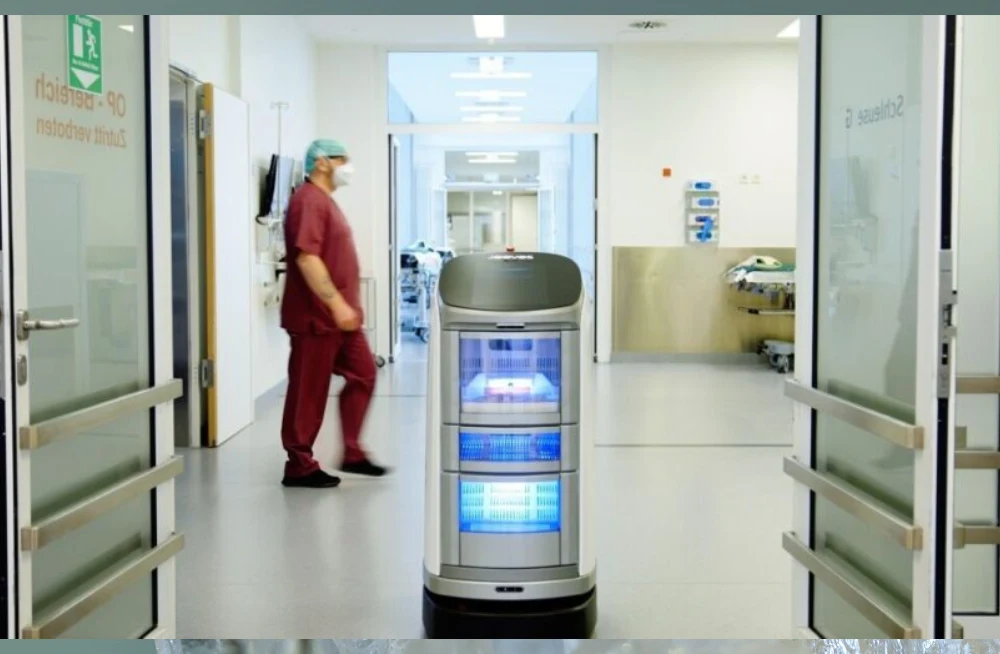As hospitals worldwide grapple with staff shortages and budget constraints, the integration of automation long established in other industries emerges as a promising solution. While medical robotics have traditionally been associated with specialised tasks in operating theatres, a new frontier is expanding: the use of robots for logistical operations and maintenance tasks within hospital environments.
Navigating Challenges: Robotics' Potential in Streamlining Hospital Logistics
Recent trials at institutions like LMU Hospital München Großhadern and St. Franziskus Hospital in Münster highlight the potential of robotics to streamline routine activities far from patient care areas. Service robots are already proving invaluable in transporting medical samples, medications, and supplies throughout sprawling medical campuses, augmenting human efforts efficiently.
However, the journey from concept to implementation in clinical settings is fraught with challenges. Professor Uli Fischer from LMU Klinikum München underscores the complexities encountered, such as stringent regulations for fire safety, data protection, and IT security. These factors significantly elevate implementation costs and prolong deployment timelines compared to non-medical environments.
Embracing Automation: Enhancing Hospital Efficiency Through Robotics
Nevertheless, interactions between robots and hospital staff have been largely positive, with automation seen as a critical strategy to alleviate workforce strain. "In light of staff shortages, automating tasks and optimising resource allocation are imperative," affirms Fischer, advocating for a balanced approach that enhances rather than replaces human roles.
At St. Franziskus Hospital, innovative collaborations with entities like FACT GmbH and the Fraunhofer Institute for Material Flow and Logistics have pushed boundaries. Their integration of AI and advanced sensor technology enables service robots to navigate autonomously through hospital corridors, easily overcoming obstacles like elevators and automatic doors.
Future Prospects: Robotics' Role in Shaping Tomorrow's Hospital Operations
Looking ahead, Annika Wolter, Managing Director of St. Franziskus Hospital, envisions a future where fleets of service robots support daily hospital operations. Despite the initial hurdles of acquiring and funding expensive robotic systems, Wolter highlights promising rental and leasing models for cost-effective adoption, particularly in tasks like cleaning and logistics.
Both hospitals agree on a clear trajectory: the inevitable rise of robotics in healthcare logistics. With cost pressures intensifying and skilled labour scarce, the automation of repetitive tasks emerges as not just a convenience but a necessity. However, proponents emphasise that direct patient care remains a uniquely human domain, underscoring the role of automation in augmenting rather than supplanting healthcare professionals.
As these technologies evolve, the healthcare sector braces for a paradigm shift. "No one will lose their job in the next 20 years because of a robot," assures Prof. Fischer, highlighting the anticipated growth in healthcare roles as demographic demands rise. The future, it seems, promises a collaborative synergy between human expertise and robotic efficiency—a transformative force in the evolving landscape of hospital operations.
Source & Image Credit: Medica







